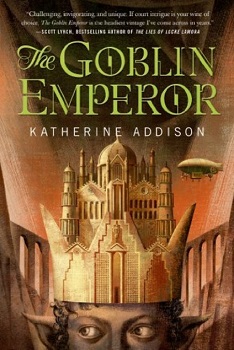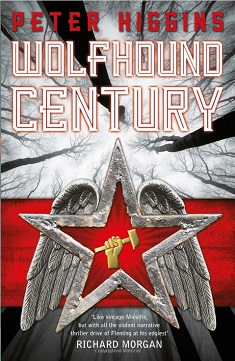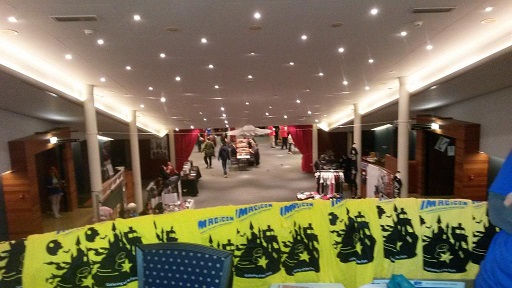
Imagicon was the first Dutch science fiction convention I’ve gone to in well over a decade. It’s a new, one day con running for the second year and wasn’t quite what I expected. Before we get to the meat of my con experience, first a couple of (minor) criticisms. First up, as you can see from the picture above (barely) the main room, with all the dealer and other stands, had to be reached down a spiral staircase which was a bit awkward even for me, but I couldn’t spot quite how people unable to take those stairs could get down. The panel rooms too had to be navigated by stairs. Since I saw at least one person in a wheelchair pootling around the con this wasn’t an insurmountable problem, but a bit more sign posting at least would’ve helped. That in fact was my second issue with the con: lack of easily accesible information and hype about the guests of honour. It was great meeting Alastair Reynolds, but he seemed remarkably sparsly attended and the con didn’t seem to have publicised his coming that much.
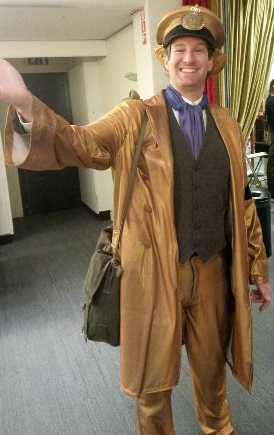
But than what the majority of congoers seemed to be going to the con for wasn’t authors or panels, but cosplay. Now cosplay isn’t quite my thing, in that I’m far from knowledgable about that part of fandom, but it was great seeing so many people doing wonderful things with costumes and dressing up. What struck me was how friendly and genuinely welcoming all these cosplayers seemed, both to each other and the people pestering them for pictures, even at the end of the con. This in fact could be said of the whole con. The staff and volunteers were efficient and helpful, there didn’t seem to have been any awkward incidents and the con was on the ball enough to have its code of conduct rules up bright and visible. There was a weapons check station immediately after the entrance frex; another sign of how cosplay orientated the con is?
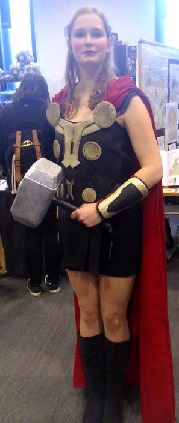
In the cosplay several themes dominated. There was a surfeit of Doctors, plenty of superhero movie & game cosplayers, including three Jokers and at least two Black Widows (but oddly enough only one Hawkeye) as well as several Lokis and Thors, like the one to the left. All of which incidentally cosplayed by women — considering the new, female Thor outsells the old, male one not that surprising perhaps. But there were also more idiosyncratic choices, like Moist from Lipwig above. I’m not quite sure about the gender mix of the cosplayers, but it seemed to me the women were in a slight majority, though the all male Ghostbuster squad made up a lot. Most of the cosplayers seemed to be in their early twenties or even younger, (though there was also one elderly Pratchett wizard walking around), a good sign for a new convention. If Imagicon can keep hold off and expand on this audience, it should be in for a long run. It’s also good for fandom as a whole to have such a successful convention of course. Perhaps next year it could expand for an entire weekend?
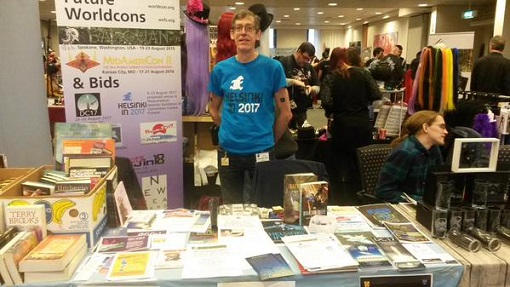
There were pockets of old skool fandom as well amongst all the cosplay. The NCSF, the oldest existing fan organisation in the Netherlands was represented with a stand, as was the Worldcon, as you can see above. It’s not so much that you expect hordes of people to sign up on the spot, but it helps to be visible, explain to people who only vaguely know about Worldcon what it’s all about and hopefully get some enthusiasm going for Helsinki in 2017. I put a stint in as well, for roughly an hour; I also met up with Emma England, from Dublin 2019 and may have agreed to volunteer.
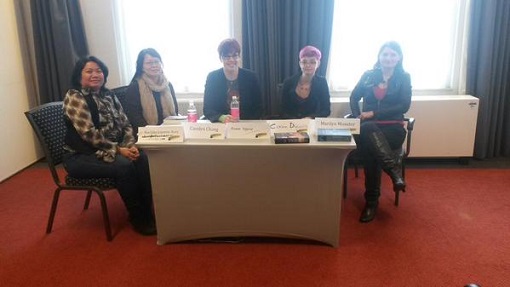
The highlight of the con for me was the diversity in fandom panel, which featured, from left to right Rochita Loenen-Ruiz, Carolyn Chang, Marieke Nijkamp as moderator, Corinne Duyvis & Marilyn Monster. Diversity is of course something fandom is struggling with and it was good to see it tackled even at a con like this, not the first place I’d expected it. The panel was lively, with everybody contributing in a relative equal matter and it was good to hear so many different perspectives. The audience was engaged as well, asking some good questions, with no nitwits to drone about some irrelevancy. The moderation was done with a deft hand, a serious of loose questions guiding the panel and with a good eye for audience questions.
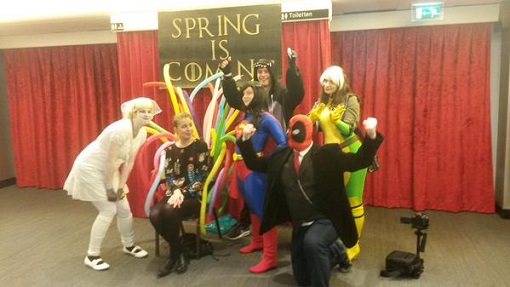
Quite a contrast to the other panel I went through, which was undermanned as it was only two blokes, talking about a similar subject, Fandoms: a Critical Eye, supposedly about the schisms and fighting between and within various fandoms. They meant well, but with no moderator and too limited a spectrum of opinion it never quite came of the ground. That one of the panelists was the classic older pedant didn’t help. Again, he meant well, but put his foot in his mouth several times. It needed moderation to keep to the subject and a wider range of people to actually be on the panel. A bigger audience would’ve helped as well..
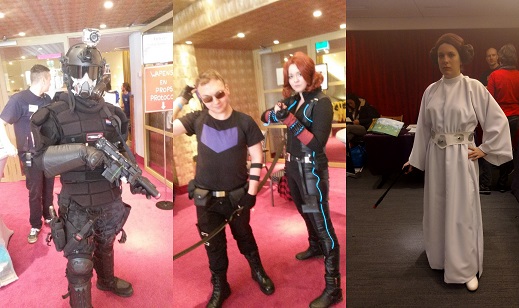
On the whole this was a great convention to kickstart my con season; Eastercon’s beckoning in two weeks. I bought some books, volunteered a bit, met up with a friend, got to meet some interesting new people all too briefly, had a chat with Alastair Reynolds who recognised me from Twitter, all in all a good con. Can’t wait for next year.
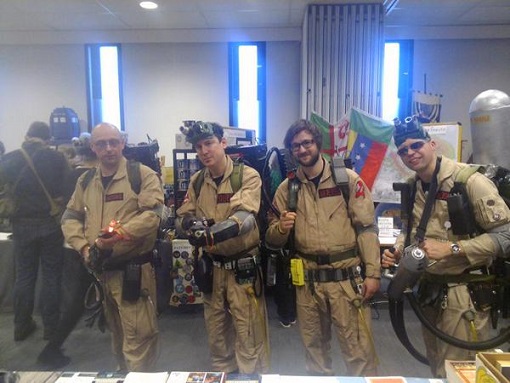
For more cosplay and other pictures, take a look at Willem Hilhorst’s Facebook page.
